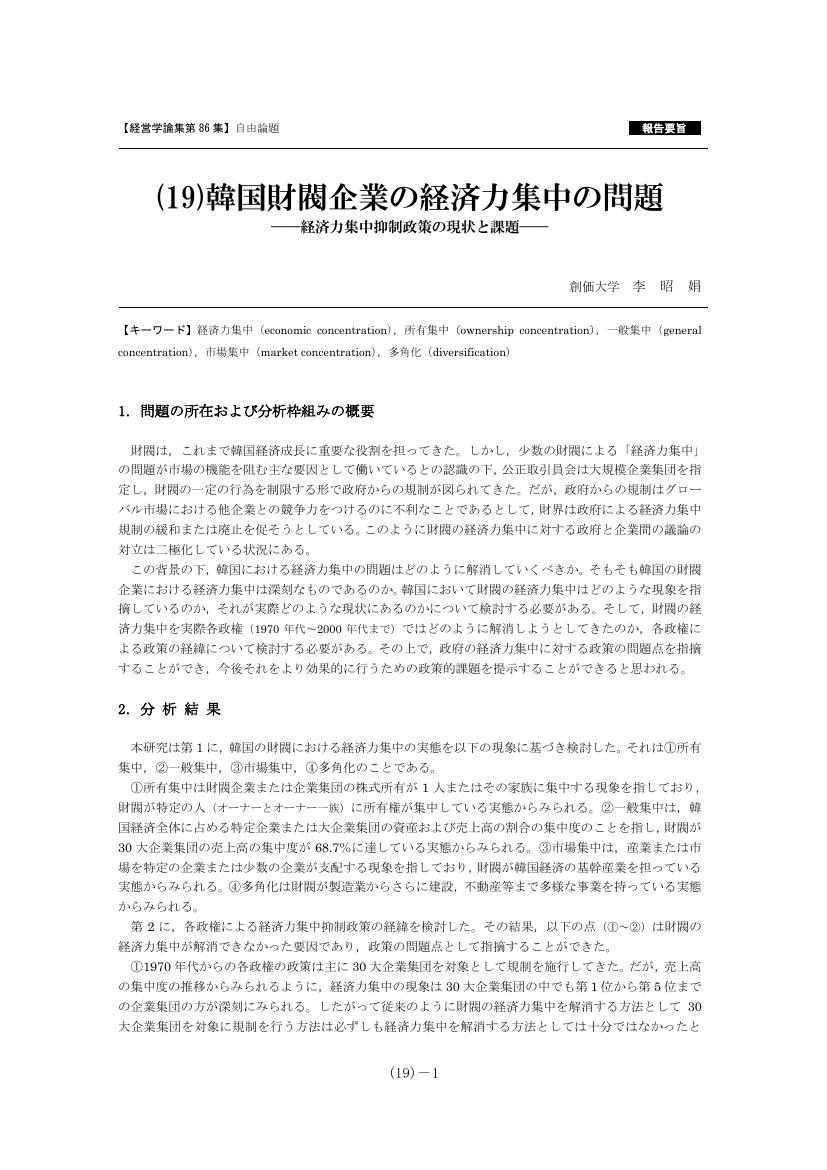8 0 0 0 OA 韓国企業の腐敗と縁故主義の関係に関する基礎的考察
- 著者
- 李 昭娟
- 出版者
- 日本経営倫理学会
- 雑誌
- 日本経営倫理学会誌 (ISSN:13436627)
- 巻号頁・発行日
- vol.21, pp.297-308, 2014-02-28 (Released:2017-08-08)
This study aimed to examine the phenomenon of corruption observed throughout South Korean society by focusing on businesses and then elucidate the factors that affect and induce such a trend. First, South Korea's unique mechanism that breeds corruption in South Korean society was theoretically examined. The results indicated that nepotism causes corruption through the effects of four factors: 1) personal, 2) organizational, 3) social structural, and 4) cultural. Second, by focusing on businesses, a further analysis was conducted on the reality of nepotism among South Korean companies. It revealed that nepotism negatively influenced businesses by 1) increasing corruption caused by inappropriate means for taking over management, 2) weakening the independence of board of directors through the appointment of outside directors based on alumni relationships, and 3) disabling the function of the board of directors and increasing the inequality within the company through the appointment of professional managers based on regional bonds. Therefore, to understand the current forms of nepotism in South Korean society, such as mutual aid provided through the reciprocal action of blood, alumni, and regional relationships encouraged in the traditional Confucian society, it is inappropriate under the current situation to focus only on businesses. In fact, the application of nepotism for the self-interests of a company head's clan is aggravating corporate corruption and increasing the occurrence of scandals.
2 0 0 0 OA (19)韓国財閥企業の経済力集中の問題 ──経済力集中抑制政策の現状と課題──
- 著者
- 李 昭娟
- 出版者
- 日本経営学会
- 雑誌
- 經營學論集 第86集 株式会社の本質を問う-21世紀の企業像 (ISSN:24322237)
- 巻号頁・発行日
- pp.F19-1-F19-2, 2016 (Released:2019-10-01)
